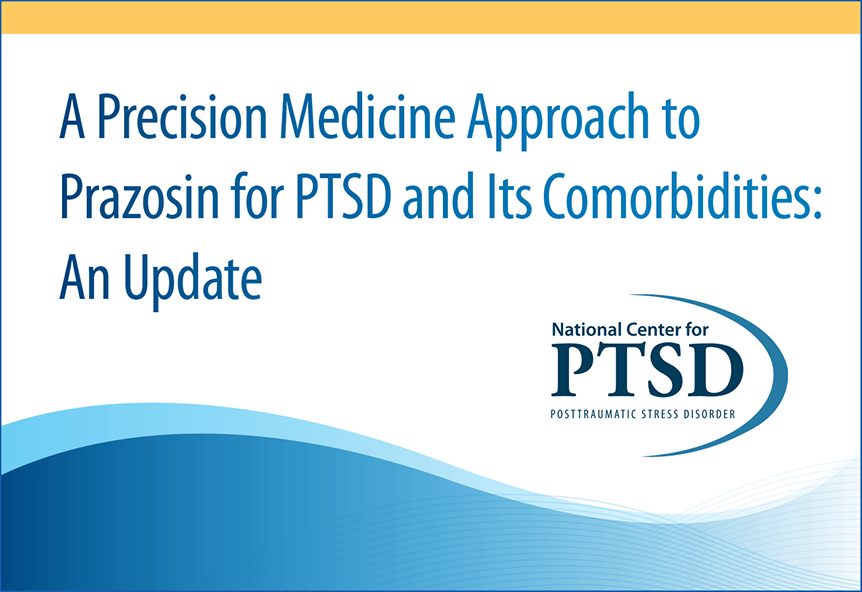PTSD: National Center for PTSD
A Precision Medicine Approach to Prazosin for PTSD and Its Comorbidities: An Update
Continuing Education
This section brings together free in-depth Continuing Education resources for the Professional community concerned with trauma.
A Precision Medicine Approach to Prazosin for PTSD and Its Comorbidities: An Update
- Date Created: 07/ 8/2021
- Time to Complete: 1 hour
- Credits:
- Skill Level: Intermediate
- Course Series:
 Author(s):
Author(s):
Description
Excessive noradrenergic signaling is the most consistently demonstrated neurobiologic abnormality in PTSD. This disturbance also characterizes alcohol use disorder (AUD), a common comorbidity of PTSD.
This course reviews the research for the efficacy of prazosin—a CNS penetrant agonist of noradrenaline signaling at the postsynaptic alpha 1 noradrenergic receptor—in reducing PTSD trauma nightmares, sleep disruption and daytime hyperarousal among Veterans. In addition, the author summarizes the research supporting prazosin efficacy for AUD.
Not all persons with PTSD or with AUD benefit from prazosin. Emerging evidence suggests that the presence of physiologic and clinical signs and symptoms consistent with increased noradrenergic signaling provide a personalized medicine approach to identifying those individuals most likely to benefit from prazosin treatment. The author describes the clinical characteristics that help predict prazosin efficacy in PTSD and AUD.
Goals and Objectives
- Describe the rationale for prazosin use in PTSD and alcohol use disorder
- Describe the evidence base for prazosin efficacy in PTSD and the variability in randomized controlled trial participant responses to prazosin
- Identify clinical characteristics that identify those patients most likely to benefit from prazosin treatment


























